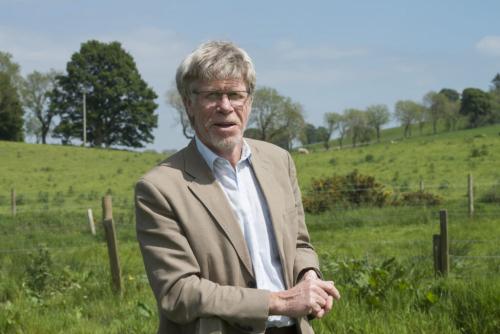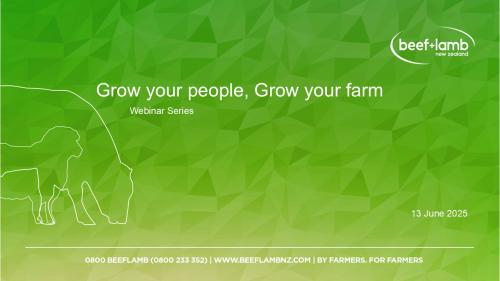Search results
Displaying 281 - 290 results of 909
- PodcastIn this call, Trevor will share his knowledge and insights for fine tuning your animal health plan following the dry autumn and heading into lambing and …

- Industry datastock number survey 30 june 2018 0800 beeflamb 0800 233 352 wwwbeeflambnzcom farmers farmers beef lamb new zealand economic service august 2018 p18015 issn 22305777 1 2018 beef lamb new zealand …
- Other PDFministry foreign affairs trade consultation update new zealands approach international climate change negotiations beef lamb new zealand ltd submission new zealands approach 2023 international …
- NewsBeef + Lamb New Zealand (B+LNZ) National Extension Programme Manager Olivia Weatherburn is encouraging Action Groups throughout the country to continue their positive work, despite annual funding …

- VideoDuring the session we explored practical training methods and learn’t how to start developing a successful on-farm training plan. Resources: Learning – What we know Dreyfus Questions that engage …
- Editable PDF… rates average lambing date 2ths average weaning date 2ths lambing lambs weanedinlamb ewes july weaning weight liveweight nonreplacement … rams 2 start live weightas 1 july lambs weaning 3 end live weightas 30 june lambs when …
- Factsheet… yesno 2tooth ewe body condition score bcs weaning average bcs all 2tooths ewes weaning each year bcs 3 above yesno 2tooth ewe … each year kgs above yesno cow liveweight weaning average weight all cows weaning each …
- NewsBeef + Lamb New Zealand (B+LNZ) representatives are gearing up for the UN Climate Change Conference of the Parties (COP28) meeting soon in …

- NewsBeef + Lamb New Zealand is leading a ground-breaking genomics project which will help future-proof New Zealand’s sheep …

- Other PDFregional delivery plan 2025 midnorthern north island what doing our mnni regional delivery plan purpose address our farmers needs providing tools information support create confidence engagement …
